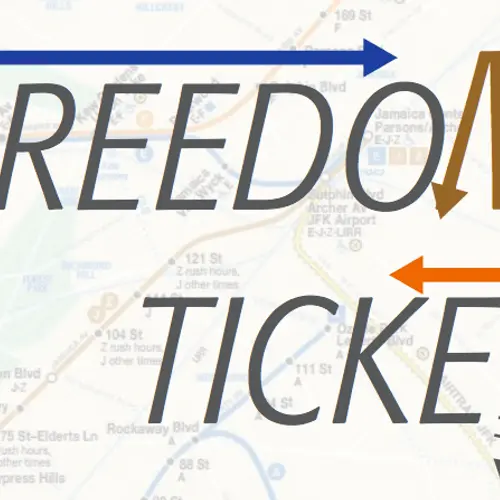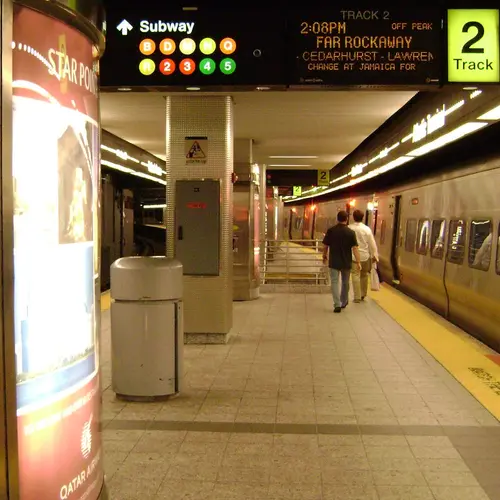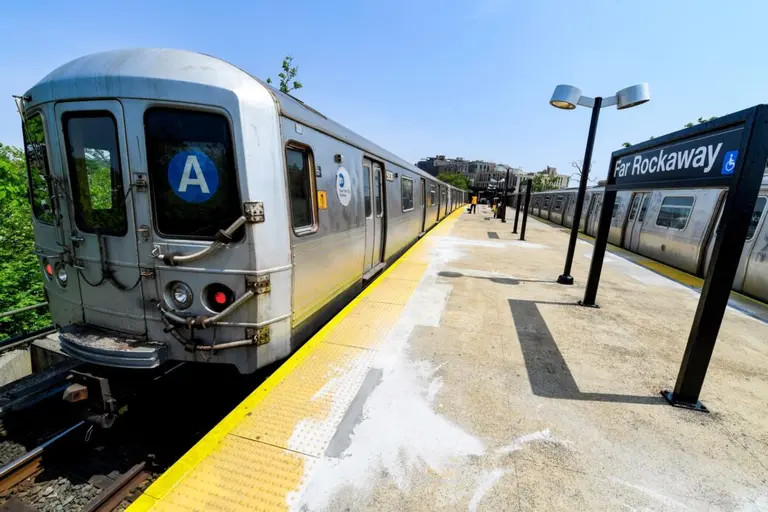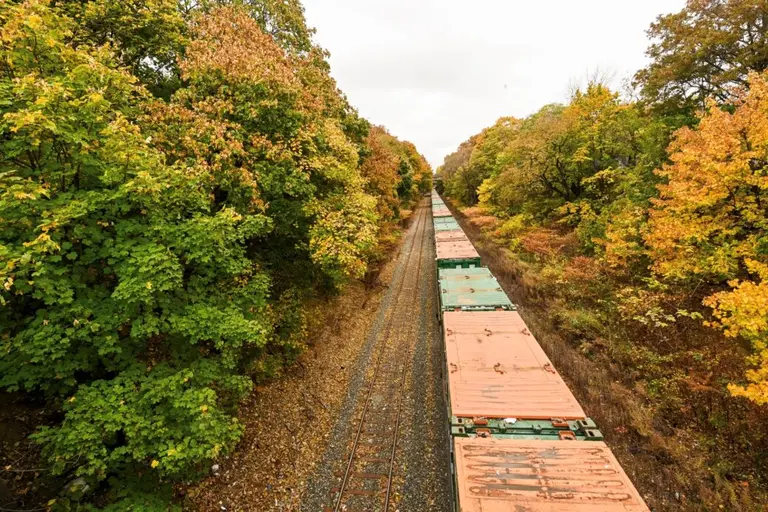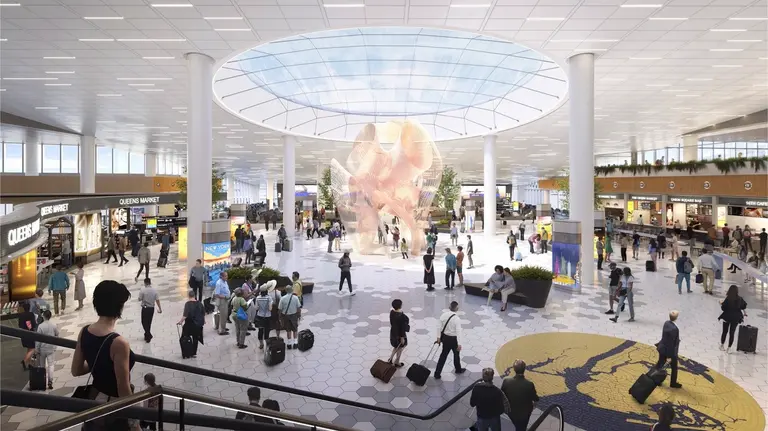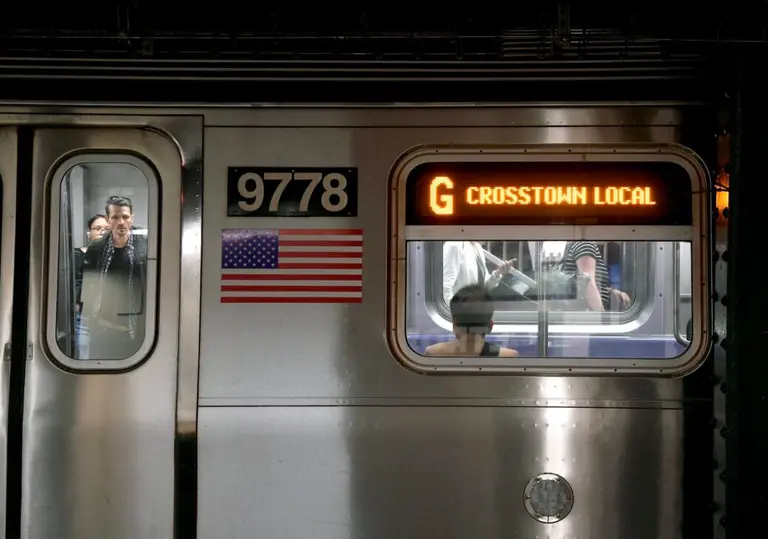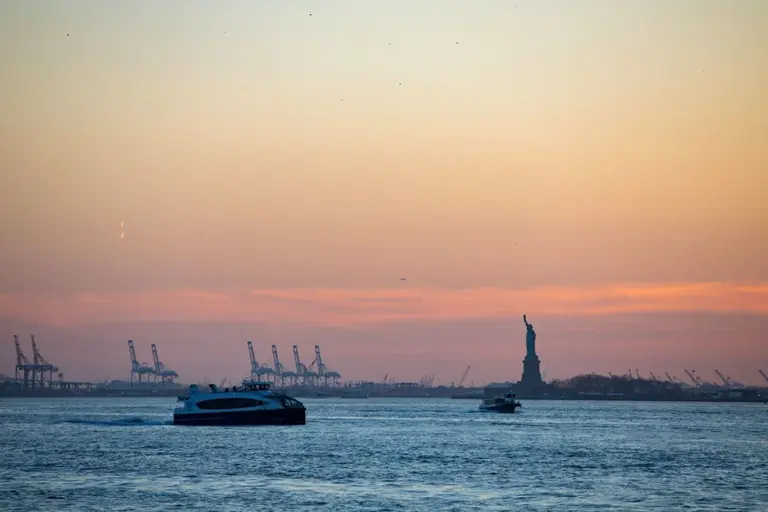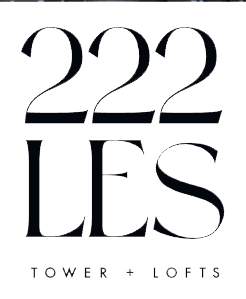‘Freedom Ticket’ will offer a transit discount to those in outer Queens and Brooklyn
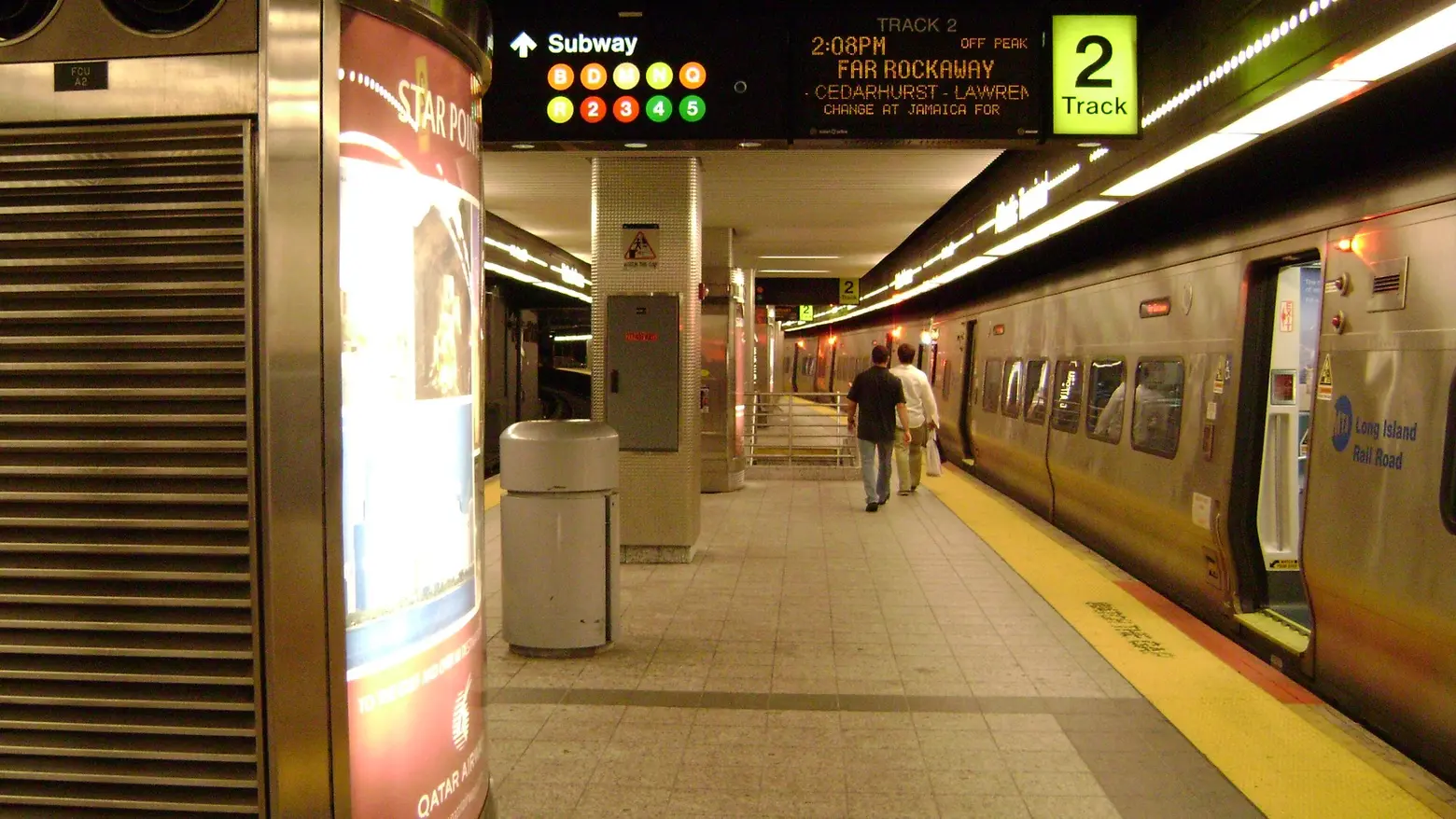
New Yorkers living in the outer reaches of Brooklyn and Queens may soon find some relief when it comes to their daily commutes. The MTA’s New York City Transit Riders Council (NYCTRC) is looking to make travel more efficient and affordable for those residing in the city’s transit deserts through a “Freedom Ticket” pilot initiative that will, says Gothamist, temporarily offer discounted flat-fee tickets for bus, subway and commuter rail travel with unlimited free transfers.
The price of the ticket has not yet been announced, but $6.50 had been floated in 2015 when the idea was first unveiled. While this figure is considerably higher than a single subway or bus ride, it is also about half the price of purchasing both a MetroCard and LIRR ticket.
“There is wonderful rail infrastructure running through Brooklyn and southeast Queens, but unfortunately it’s priced beyond the reach of many neighborhoods,” said Andrew Albert, head of NYCTRC and a non-voting MTA board member, in a statement.
Indeed, those residing in transit deserts are disproportionately low-income, and unlike the average New Yorker who spends about 6.5 hours commuting a week, they can find themselves spending up to 15 hours in transit weekly.
The Freedom Ticket aims to serve those who would otherwise buy separate tickets to use commuter rails like the LIRR and the NYC subway. Under the pilot, riders will be able to buy single one-way tickets, weekly or monthly passes valid for both modes of transit.
The adjusted ticket will also help the MTA fill out underused LIRR trains, which find about 20,000 empty seats during an average peak trip from Jamaica to Penn Station. Brooklyn Borough President Eric Adams also sees the program as one way to alleviate the overcrowding that will result from the impending L train shutdown and reduced service on the M line as it undergoes repairs.
LIRR stations participating in the pilot will likely include Atlantic Terminal, East New York, and Nostrand Avenue in Brooklyn, and Laurelton, Locust Manor, Rosedale, and St. Albans in Queens. The program is expected to last for six months, and during that time the MTA will evaluate its performance and decide whether it should be implemented permanently.
Albert believes New Yorkers should expect an outline for the Freedom Ticket pilot in the spring with a roll out in the fall. But for a more general idea of how things might play out, here’s a rough timeline the NYCTRC has presented on their site:
Phase 1 (2017): Southeast Queens Freedom Ticket Proof of Concept:
Riders face some of the longest commutes to Manhattan employment centers in New York City and rely on a patchwork of buses and commuter vans to access overburdened subway lines. The initial phase would provide valuable experience with the program and allow for adjustments before expansion.
Phase 2 (2019): Freedom Ticket expanded to targeted Metro-North and LIRR stations.
In Phase 2, Freedom ticket would be implemented in areas where NYC commuter railroad stations are .8 miles or more from the nearest subway station.
Phase 3 (2021): The third phase would implement Freedom Ticket throughout the City.
[Via DNA Info]
RELATED:
